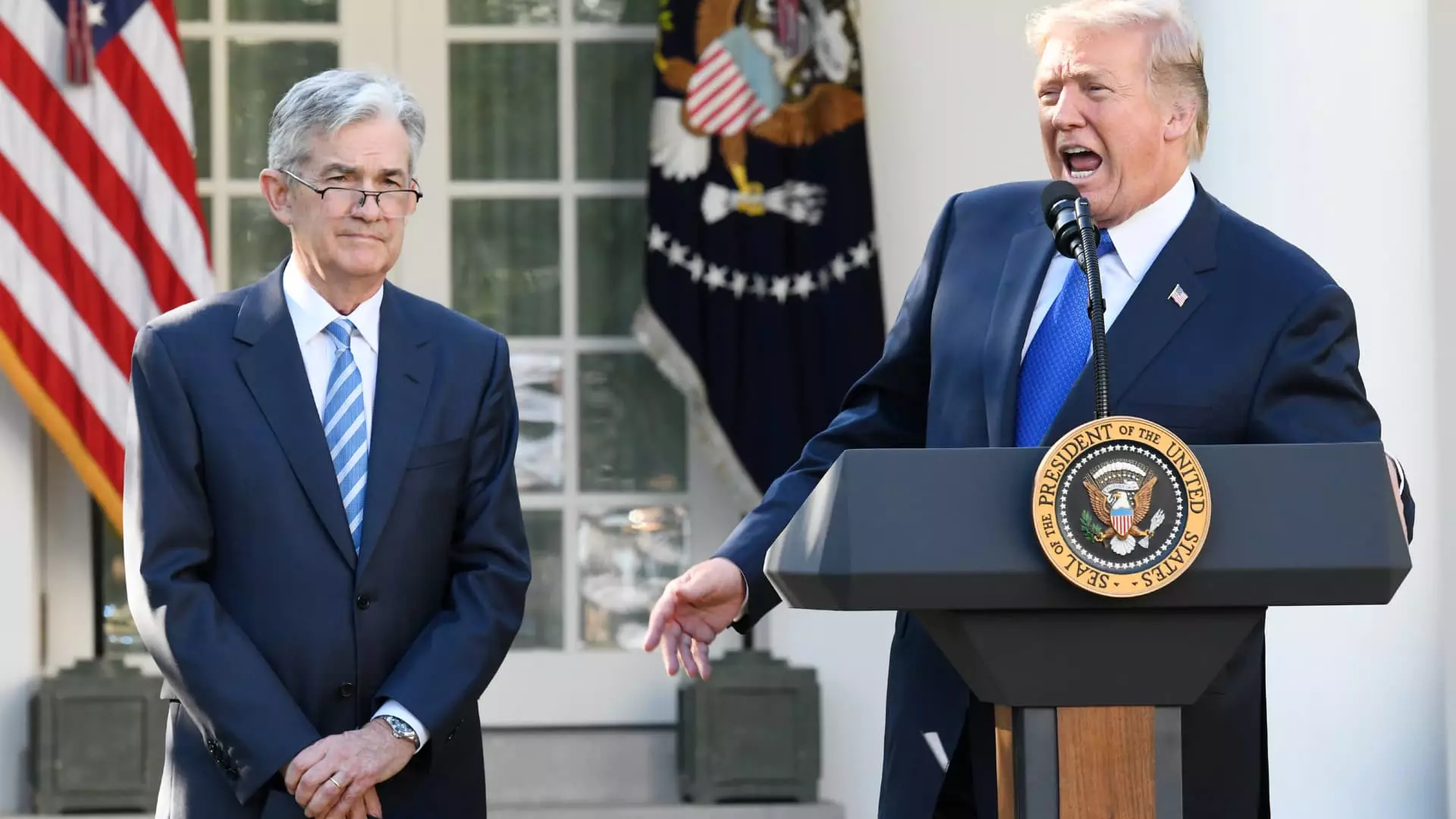In a stunning display of economic misjudgment, former President Donald Trump has taken to social media once again to pressure Federal Reserve Chairman Jerome Powell into enacting a dramatic interest rate cut of one percentage point. This demand comes amidst a surprisingly robust jobs report, which reveals that U.S. hiring exceeded expectations. It’s alarming to witness a leader so caught up in his ego that he believes his whims can alter economic realities. Trump’s assertion that the U.S. economy is “doing great” while simultaneously demanding aggressive monetary policy action demonstrates a profound ignorance of the delicate balance required to maintain economic stability.
Do we really want an environment where market forces are overridden by the whims of a former president? Trump’s reasoning implies that lower interest rates will magically solve all economic woes, yet such superficial analysis ignores the intricate mechanisms of global finance. High interest rates can indeed stifle growth, but lowering them irresponsibly, particularly when the economy shows signs of vigor, risks igniting inflation—the very bugbear Trump seems to overlook.
Data-Driven Decision Making vs. Reactionary Rhetoric
Trump’s critics must find solace in the Federal Reserve’s more data-driven approach, as opposed to reactionary rhetoric. The latest jobs report indicates nonfarm payrolls rose by 139,000, far exceeding Dow Jones expectations. This upward trajectory reflects a labor market showing resilience despite the uncertainties surrounding trade policies. Trump’s fixation on slashing rates does nothing to acknowledge the positive aspects of the report—namely, that average hourly wages grew by 3.9%, signaling a tightening labor market.
Yet the current economic landscape is poison for further indulgence in rate slashing. Historical patterns suggest that aggressively lowering rates during prosperous times can lead to long-term economic consequences. The last significant cut of one percentage point occurred in March 2020, a desperate measure forced by the catastrophic impacts of the COVID-19 pandemic; such drastic measures should not be wielded casually in situations of relative economic strength.
The European Context
In his latest tirade, Trump implied that the Fed’s approach to interest rates is out of step with global economic trends. While it’s true that the European Central Bank has been on a rate-cutting spree, one must consider context. European economies are grappling with their unique challenges, including sluggish growth and persistent inflation pressures that differ significantly from the U.S. landscape. Comparing the Fed’s actions to those of the ECB is a dangerous conflation; it disregards the fundamental differences in economic conditions.
Moreover, it appears that Trump fails to acknowledge the potential fallout from his own trade tariffs, designed ostensibly to protect American businesses, are the very catalysts for inflationary pressure. If his tariffs drive up prices, how can he in good conscience demand lower borrowing costs? Taxpayer-funded bailouts may seem like a safety net, but they burden future generations with debt and distort market principles.
The Ramifications of Populist Economics
Trump’s populist economic tactics are not merely misguided; they risk creating a culture of dependency on cheap money that stifles innovation and entrepreneurship. The inclination toward immediate gratification, where businesses and consumers could borrow at ultra-low rates, clouds our collective foresight. Slashing rates could encourage reckless lending and borrowing, ultimately resulting in an economic crisis that we may not see brewing until it is too late.
There’s a troubling irony in a leader who boasts of economic prowess yet demands policies that enrich a narrow band of interests at the cost of the wider economy. If there’s one virtue of a center-left liberal perspective, it’s the insistence on responsible stewardship of economic policy—something this administration seems content to sidestep in favor of populist platitudes.
In a society driven by excessive short-term gain, the potential erosion of hard-earned economic stability poses a looming threat. We must question not just the actions themselves, but the underlying philosophies that motivate them. The apparent addiction to low interest rates could very well send ripples across the financial landscape in ways that Trump’s tweets cannot temper. So as we engage in this national dialogue, let’s do so with a sense of responsibility, recognizing that it’s the health of the economy—rather than the whims of any individual—that must guide our monetary policy.

Leave a Reply